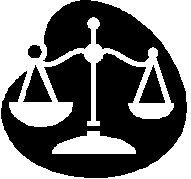|
1. A sense of God – God is defined as the
collective social consciousness of a social organism.
The stronger the sense of belonging and identity
of each individual to the collective social consciousness, the more
powerful and focused the social organism can act.
2. A sense of religion – Religion is defined
as the collective social conscience of a social organism.
The stronger the collective sense of morality –
the obligation imposed on individuals and cells comprising the social
organism, to choose the collective welfare over the welfare of the
individual or cell, the more resilient is the social organism to internal
and external stress and damage
3. A sense of science – Science defined as
the system and tools for the gathering of facts and uncovering of truth
for the social organism.
The higher the purity and the more devoted the
internal mechanisms are to the search for fact and truth , the more able
the social organism will be to see and correct weaknesses within, and
exploit advantages over its rivals and adversaries.
4. A sense of philosophy – Philosophy defined
as the creation of predictive algorithms and models of behavior to achieve
a physical and social result.
The more representative the models and algorithms
are of reality, the more effective the social organism will be in
achieving its missions, objectives, and goals.
5. A sense of governance – Governance is
defined as the rules and mechanisms employed to enforce internal
consistency and internal coherence within the social mechanism
The better that the rules and practices of
government resolve internal conflicts, and identify and remove disruptive
elements within, the more able is the social organism to respond to, and
prevail over, external threats.
6. A sense of history – History is defined as
that which has already occurred.
The better a society understands the past, the
better it is able to predict the future.
7. A sense of future – Future is defined as
that which is yet to occur.
The more that individuals and groups comprising a
social organism believe their coordinated and aligned efforts contribute
to and enhance their collective chances for survival, continuance-in-kind,
and prosperity, the more willing they will be to sacrifice themselves for
the good of all, when necessary.
|
